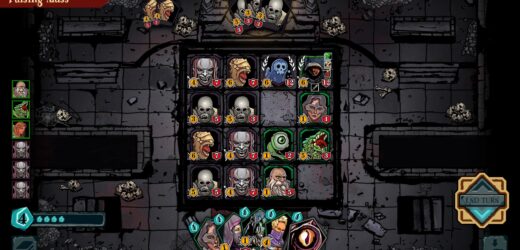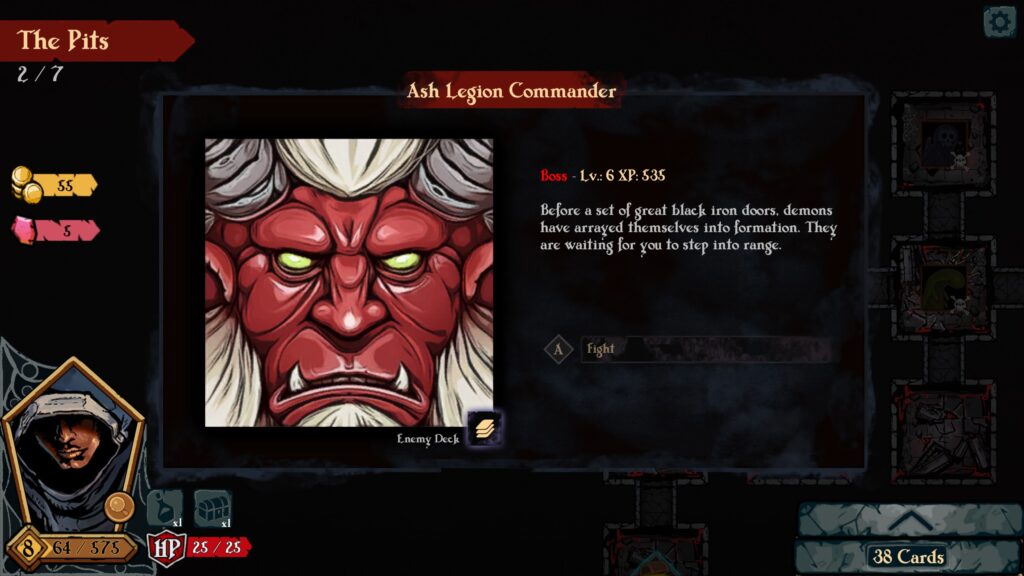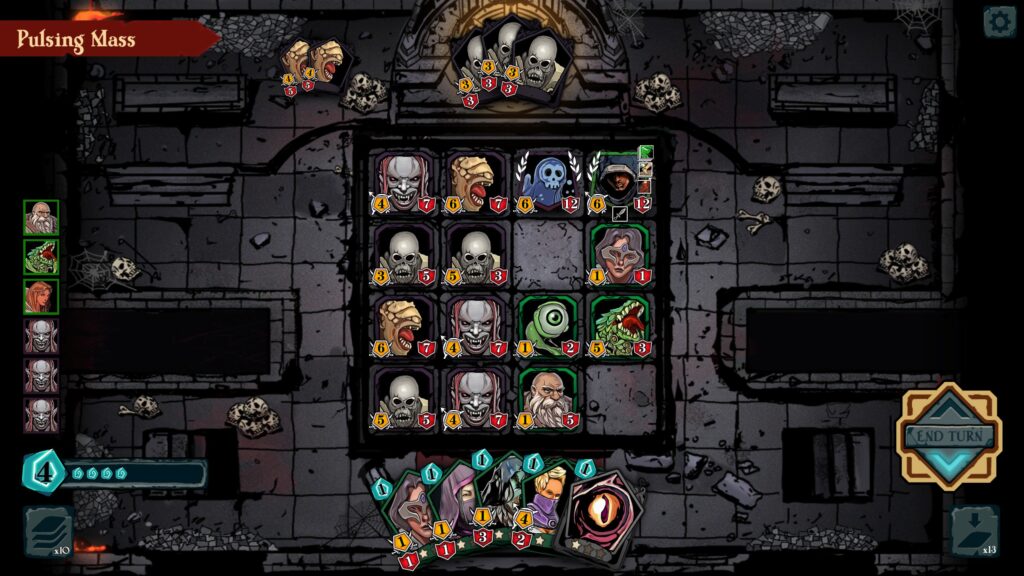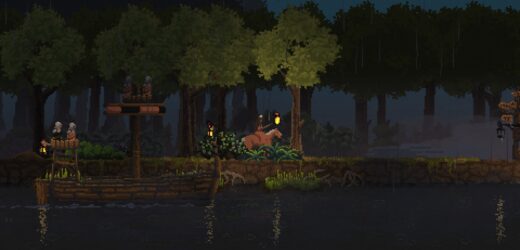Spellsword Cards: Dungeontop (Review)

Source: Review Copy
Price: £12.39
Where To Get It: Steam
Other Reviews: Early Access 1 Early Access 2
I’ve spoken a few times before about how enjoyable I find the many tactics you can find in the simple decks of Dungeontop, the aesthetic, the battles.

And now, I’m faced with a door. A door to the final level. Between me and the final level is… A lock. And, not having encountered a key anywhere else but the first level, I think to myself.
Ah. So I have to survive four bosses without a heal after each one, to get to this, the final level. Sod.
So, yes, Dungeontop now has a challenge mode level. And it both amuses and frustrates, tipping toward the former. After all, you can exit the dungeon, earning your due gold for a run, at this point. Still… Mean.
A recap for folks, then. Spellsword Cards: Dungeontop is a strategy deckbuilding roguelike, which is to say, you start with a deck taken from your class (Warrior, Mage, Rogue) and your allegiance (Hand of Karim, Guardians of Helm, Tribes of the North.) From there, you go through a dungeon, moving from fight to fight, and the fights…

The fights are a grid, on which you play units, and have a hero. You have 3 mana, cards cost between 1 and 3 mana, can only be placed adjacent to each other (or your hero), and they get to move, attack, or both (Some folks have abilities like multistrike or leap, which changes this.) Kill the enemy hero, you win the fight. Your hero dies, you lose. Them’s the basics.
Now, we’ve talked about the various decks in previous reviews, but what we haven’t covered is the final faction, the Tribes of the North. They’re a pretty interesting one, because many of their units rely… On fungus spores. It makes them grow in power, so setting up a good spore economy means your units have the potential to be absolute shitkickers… Provided they live long enough, because many of them are individually weak. Also in the deck are Evolve cards. These ones are also interesting, because every time they kill a minion, everything with evolve gets an ability. Where Helm relies on bruisers, and Karim relies on sacrificing your own, the Tribes of the North rely on teamwork and growth. So… I’m liking the cut of their jib!

Nonetheless, as mentioned earlier, the aesthetics are good, with some solid card art, some good atmosphere in the music, and sounds that do the job. The menu is still, somehow, a little small, not unreadably so, but… There’s a lot of screen real estate they aren’t using, and it somewhat annoys me.
Beyond this, though, Spellsword Cards: Dungeontop is a strong roguelike of its ilk, and comes recommended. It’s got a lot to play with, a lot to unlock, and the tactical end of things, even by the time you become familiar with the enemies you come across, is interesting. Worth a try!
Teamwork shall destroy our enemies far better than throwing others to the wolves.















